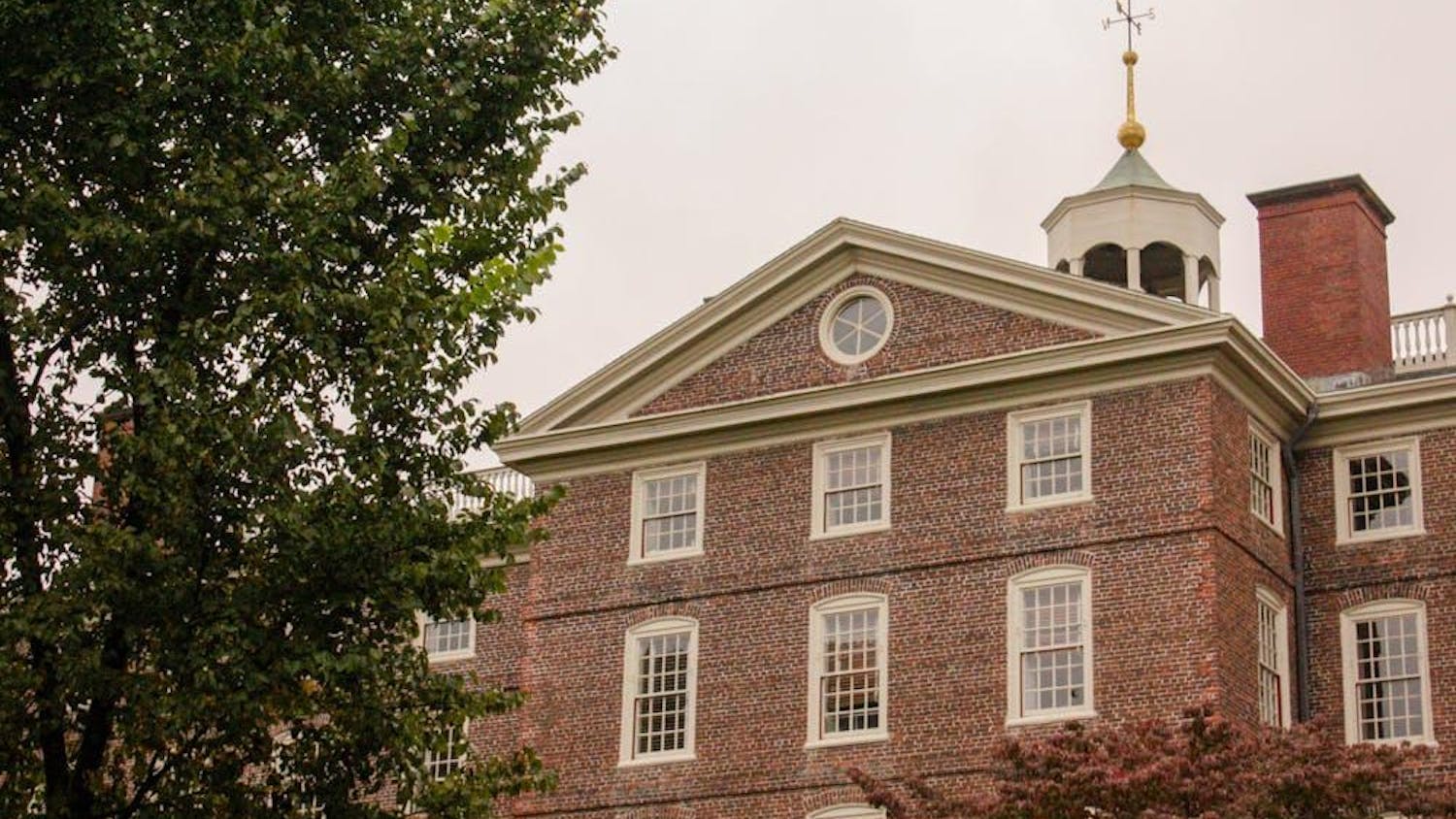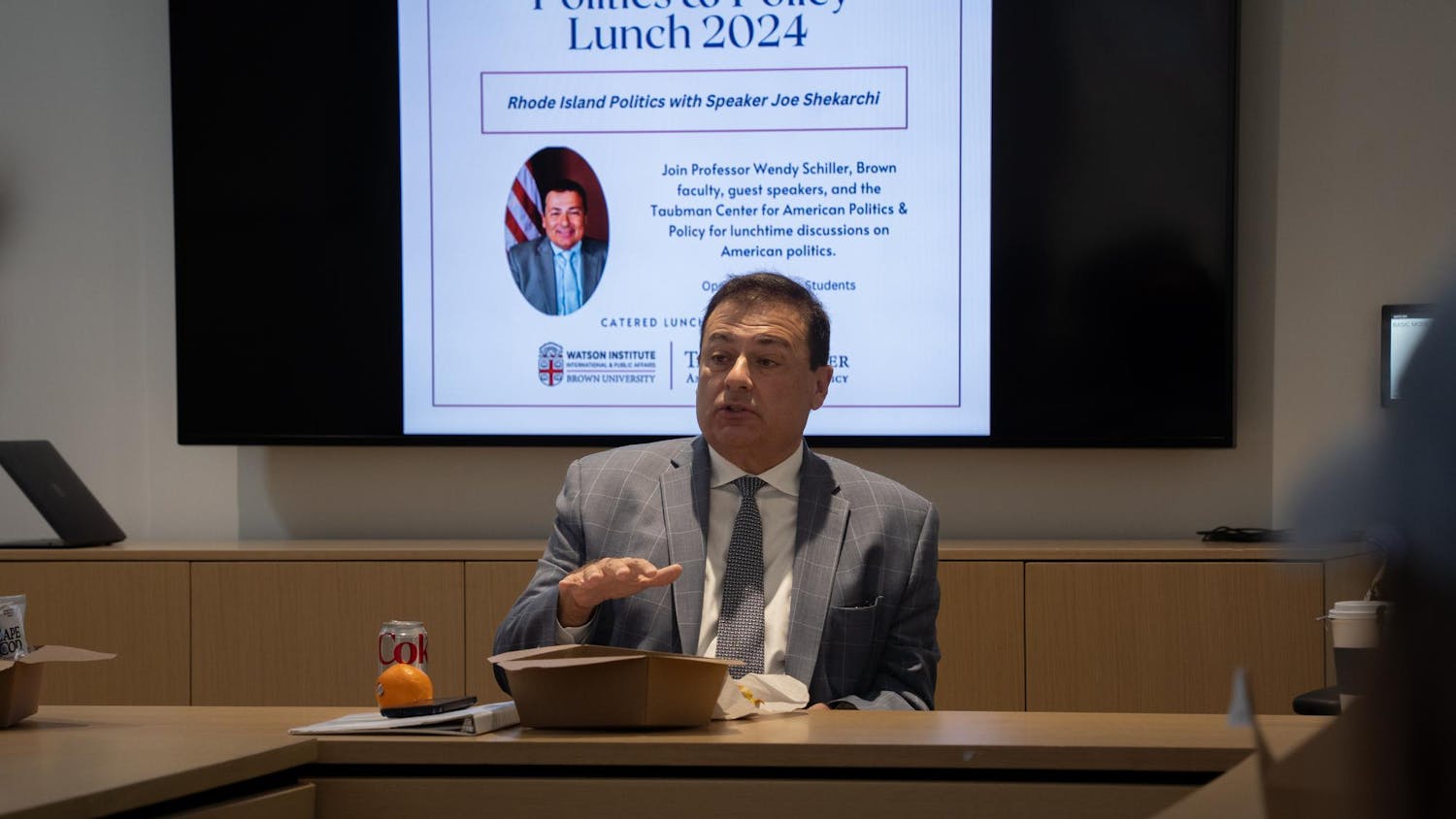Ted Widmer, assistant for special projects to President Christina Paxson and senior adviser to Secretary of State Hillary Clinton, said he felt like a "fly on the wall" while listening to the secret recordings of former president John F. Kennedy P'83.
At a Brown Bookstore lecture last night, Widmer, who is also the former director of the John Carter Brown library, described his experience transcribing over 265 hours of Oval Office secret recordings for the book, "Listening In: The Secret White House Recordings of John F. Kennedy," which went on sale last month. He selected the two most compelling hours of recordings to serve as the focus of the book and wrote introductions and brief explanations of each recording.
Starting in 1962, Kennedy began to tape-record his Oval Office and cabinet office conversations via hidden microphones. Widmer theorized that these recordings were meant to preserve information for a memoir that Kennedy was planning on publishing after his term in office.
The book was published in conjunction with the John F. Kennedy Library to shed light on the Kennedy administration and on the former president's personality, Widmer said. Though the hundreds of recordings are available online, the reduction of the tapes into two powerful hours with Widmer's annotations is likely to be more appealing to and easily understood by the general public, Widmer said.
With the release of the tapes, "We have a motherload of information," Widmer said. "John F. Kennedy has become intensely real and larger than life."
Durng his six months working on the project, Widmer found it "remarkable to listen to (Kennedy) in action," he told the audience. Kennedy was wholly human - he had insecurities, talked about why he believed he should be president and had his moments of exasperation, Widmer said.
Widmer gave an example of a time where Kennedy said he did not "feel like a politician." He said that Kennedy did not want to board an airplane and shake everybody's hands - he simply wanted to take a seat and read a book.
Widmer also spoke about the influence of the recordings in framing history. "You heard a lot of American history coming through the recorders," he said. Dozens of hours of conversations about the Cuban Missile Crisis and the Bay of Pigs invasion were captured, revealing that many of Kennedy's advisors were "getting things wrong," Widmer said. He said he believes that the tapes must be comforting to the Kennedy family because they show that his decisions were influenced by deeply flawed advice.
After the talk, a few samples of the recordings were played for the audience. Despite the muddy quality of 1960s recording technology, the audience was able to grasp a sense of Kennedy's personality. Daniel Johnson, an archivist at the John Hay Library who was present at the talk, asked about the advantages of the printed book over a digital version of the book, accompanied by audio. Widmer responded that a digital package would be a great idea that would appeal to younger generations, but older generations - those who sympathize with Kennedy - are still attracted to the feel of traditional books.
Widmer concluded by saying that he hopes the book will catch the interest of Americans and help them realize the significance of this type of historical preservation, as Oval Office audio recordings went extinct in the 1970s.




